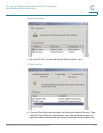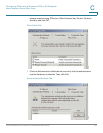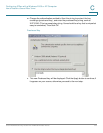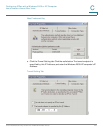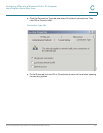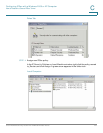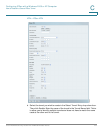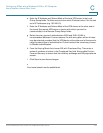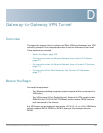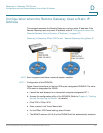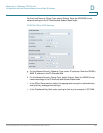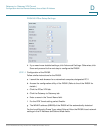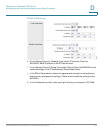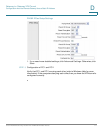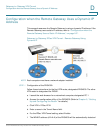
Configuring IPSec with a Windows 2000 or XP Computer
How to Establish a Secure IPSec Tunnel
Cisco RVS4000 Security Router with VPN Administrator Guide 165
C
e. Enter the IP Address and Subnet Mask of the local VPN router in the Local
Group Setup fields. To allow access to the entire IP subnet, enter 0 for the last
set of IP Addresses (e.g. 192.168.1.0).
f. Enter the IP Address and Subnet Mask of the VPN device at the other end of
the tunnel (the remote VPN router or device with which you wish to
communicate) in the Remote Group Setup fields.
g. Select from two types of authentication: MD5 and SHA1 (SHA1 is
recommended because it is more secure). As with encryption, either of these
may be selected, provided that the VPN device at the other end of the tunnel is
using the same type of authentication. Or, both ends of the tunnel may choose
to Disable authentication.
h. From the Keying Mode list, choose IKE with Preshared Key. Then enter a
series of numbers or letters in the Preshared Key field. Also enable Perfect
Forward Secrecy to ensure that the initial key exchange and IKE proposals are
secure.
i. Click Save to save these changes.
Your tunnel should now be established.



